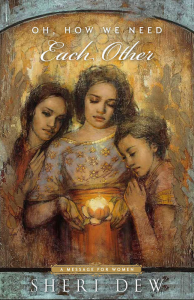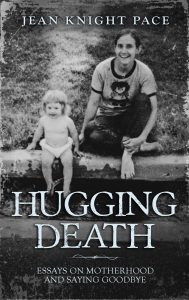It was more than a decade ago, and I was in a new branch, and just called to be a Relief Society Teacher. I wasn’t thrilled. I had only recently found the Exponent Blog as my favourite resources for lesson plans, and wasn’t confident teaching Mormon women. To me, Mormon women meant mothers—the same mothers who seemed to have nothing in common with me- who was childless at the time. I thought the calling was not inspired, but assigned just a job that the new girl could fill.
“It’ll give the women a chance to know you,” encouraged a friend from my previous ward. “I think it will be good.” Her words were enlightening and supportive—I had not thought of this calling as an opportunity for the women to get to know me. But she was right– we do get to know those who teach us. Armed with her advice and support, I accepted.
The branch president wanted to set me apart as soon as I told him I’d do the calling. Before I could think twice, I found myself seated with his hands on my head, being blessed for inspiration and direction. Mid-way through the setting apart, he said, “This calling will also be a blessing to you and your children-” he abruptly stopped. My eyes were closed, yet I rolled them. I was sure that he stopped because he recognised that he had made a mistake. I had no children, I was not a mother. He paused. It was as though the room froze– no one knew what to do with such a glaring mistake. He decided to keep going and seemed to rush. The thing was quickly finished and I left without shaking his hand. I wasn’t in tears, but the opposite! I was satisfied in the knowledge that the branch president was not guided by the spirit.
 Or was he? At the time, I was tutoring children. I had a dozen in my home on a regular basis. At church, I felt pushed away from them– as though the Mormon mothers shunned me and thought me daft, compared to the non-Mormon mothers of my students who often asked me for parenting advice and respected my input. It was in this non-Mormon circle of friends where I felt included, where I was mothered, where I mothered in return, and where sisterhood reigned.
Or was he? At the time, I was tutoring children. I had a dozen in my home on a regular basis. At church, I felt pushed away from them– as though the Mormon mothers shunned me and thought me daft, compared to the non-Mormon mothers of my students who often asked me for parenting advice and respected my input. It was in this non-Mormon circle of friends where I felt included, where I was mothered, where I mothered in return, and where sisterhood reigned.
This memory came to me as I was contemplating this Mother’s Day post. Over the past few weeks, I have been preparing for Mother’s Day—even though I am now a mother of two of the most marvellous children ever to grace the earth, I still feel the need to shield myself from the day. Don’t get me wrong—I love Mother’s Day with my family. It’s church and church on Mother’s Day that drains me.
Confused? Think about this one example: Missionaries call home twice a year—Christmas (Birth of Christ) and Mother’s Day (primarily focused on the woman who birthed you– but maybe adoptive mothers and dads, too if you’re progressive like that). In the end, official mandates to pedestal the mortal act of birth simply leave me cold. In fact, I think cancelling church on Mother’s Day would be the best thing the church could ever do to support its female members. Spending the day with my family (or with female friends) is by far my favourite part of Mother’s Day! But I digress.
In preparation for Mother’s Day survival, I read materials—some old, and some new, that inspire me to feel happy about Mother’s Day at church. In this year’s reading, I found a common theme: Sisterhood. Here are some of my favourite inspirations this year:
Our own Heather wrote in Surviving Mother’s Day:
“Whether you’re a diamond or Cubic Zirconia, a long sufferer or a screamer, a maker of fine baked goods or a purchaser of Hostess products, I salute all the women out there who love and nurture and make mistakes and keep on going. And especially I thank all the women in my life, my friends, my sister, my daughters, and my mom, who treat me like a ruby, even when I’m not.”
Showing gratitude, and speaking well of each other, even when our opinions differ so widely, is imperative! I am trying to get better at it myself (I am rather gifted with foot-in-mouth even with those of whom I agree!) Thus, I was thrilled and almost confused when I saw Sheri Dew’s most recent publication, Oh, How We Need Each Other / 2018 Mother’s Day Booklet.
 So I read it. And I liked it! In it, Dew acknowledges without judgement that Sonia Johnson was opposed to the church’s position on the Equal Rights Amendment. She states Johnson’s position as a matter of fact, without taking sides. Dew’s words were inclusive for those who have children, and those who do not, with a distinct nod to Eliza R. Snow—another childless hero of my own. The Minutes of The Female Relief Society are also celebrated as Dew bears witness of the relevance these minutes have for all Relief Society sisters today. Reading this was truly a delightful surprise that again fed into the feelings I had on distinguishing SISTERHOOD as the preferable, imperative concept for Mother’s Day.
So I read it. And I liked it! In it, Dew acknowledges without judgement that Sonia Johnson was opposed to the church’s position on the Equal Rights Amendment. She states Johnson’s position as a matter of fact, without taking sides. Dew’s words were inclusive for those who have children, and those who do not, with a distinct nod to Eliza R. Snow—another childless hero of my own. The Minutes of The Female Relief Society are also celebrated as Dew bears witness of the relevance these minutes have for all Relief Society sisters today. Reading this was truly a delightful surprise that again fed into the feelings I had on distinguishing SISTERHOOD as the preferable, imperative concept for Mother’s Day.
I was also happy to read the words expressed by artist Caitlin Connelly in the Deseret News. In the article, she celebrated creation as means of eternal, nurturing worth:
“I hadn’t physically born children, but I had brought into existence hundreds and hundreds of characters that wouldn’t exist if I hadn’t created them. That changed my heart and I understood my own ability as a nurturer differently after that point. And I think that’s true for everyone, not just me as an artist. What have you created and cared for that wouldn’t exist if you hadn’t cared for it?”
Though my own daughters are adopted, as I have parented, I have seen things in me that are  my mother—and likewise, I see things in my daughters that are me. Thus, when I read Jean Knight Pace’s Hugging Death: Essays on Motherhood and Saying Goodbye, I could relate to much of what she wrote—the bravery of women, then longing for connection, the complications of everyday life. The book is a short read, but yet a collection of powerful personal essays that relay the complicated feelings we each have with life, death, love and, of course, mothers. She wrote:
my mother—and likewise, I see things in my daughters that are me. Thus, when I read Jean Knight Pace’s Hugging Death: Essays on Motherhood and Saying Goodbye, I could relate to much of what she wrote—the bravery of women, then longing for connection, the complications of everyday life. The book is a short read, but yet a collection of powerful personal essays that relay the complicated feelings we each have with life, death, love and, of course, mothers. She wrote:
She is dying of cancer. I am living with four small bundles of life called children. She is winding down, getting her affairs in order. I am winding up- preparing for elementary school, teenagers, college, marriages, and trying to figure out what exactly my affairs are. Sometimes she visits- bald and stumbling, with only one small suitcase and a best-seller from the airport in tow. And I wonder- with my house fill to bursting with children’s clothes, toys, sleeping bags, art work; and my hands full to bursting with cooking, gardening, teaching, and accounting- how will we know each other, how will we remember each other, when she is gone?
In the above words, I wondered how I could remember my own Heavenly Mother. Though I know She is not dead, I long for Her, and look for Her in the work I do with my hands, my heart, and the work I share with my sisters—fellow daughters of a Heavenly Mother. (If this is your cup of tea, remember that the Exponent blog brought you a beautiful Heavenly Mother’s Day series.) I found myself weeping as I read, good, strong tears as I shared feelings of love, and earth and work and sisterhood.
Divinity is key in celebrating Mother’s Day. But how can this be done without leaving anyone feeling uncomfortable? I think it would be this gem shared with me by a friend:
“Best Mother’s Day talk was in a ward I visited where the bishop honored the woman who anointed Christ’s feet with spikenard. The bishop pointed out that in a room of the original twelve apostles and the messiah, only the messiah and the woman understood his divine purpose. He then gave every woman in the congregation a small vial of spikenard in honor of the inspiration that we receive by taking part in the gospel.”
To me, this is divinity, and would make the best Mother’s Day at church– celebrating sisterhood, women’s inspiration, and Heavenly Mother. So, in reading these things, though I am not thrilled to be attending church on Mother’s Day, I am not dreading it. And I’m pretty excited to get to share it with my family at home afterwards.
What about you? What do you to do prepare for Mother’s Day? How can you support the women around you who struggle with that day at church?






2 Responses
I can really relate to experiences where non-mormon women become a lifeline. It can be lonely in a small branch in Australia, that’s for sure.
Amen, Amelia. I think I relied on the church as my primary resource of friends for a long time. I think that is an unhealthy crutch and I don’t want to use it anymore.